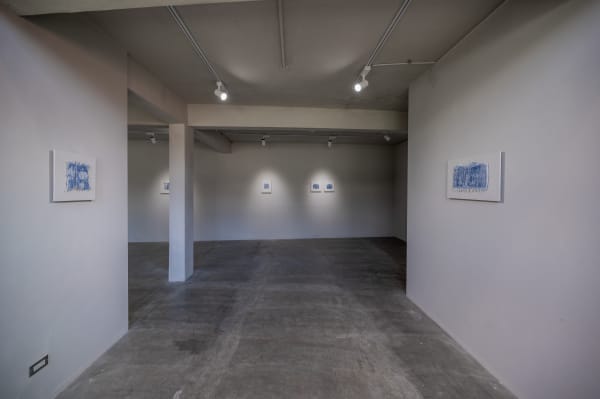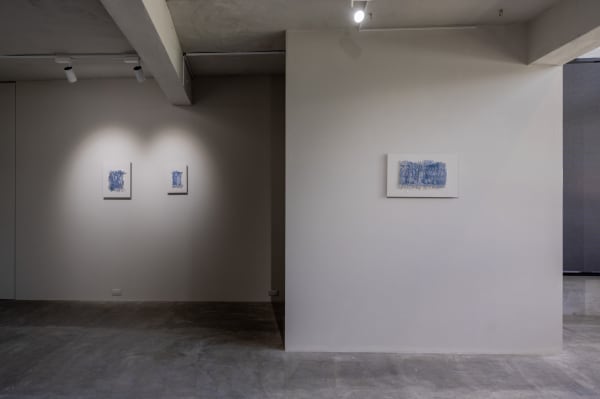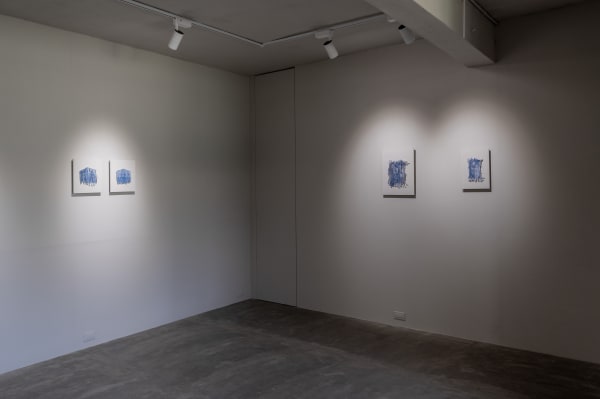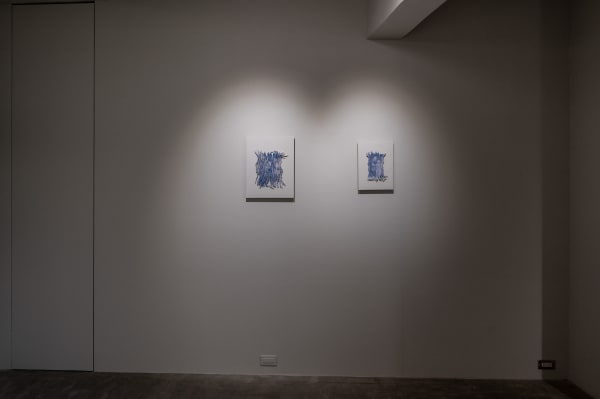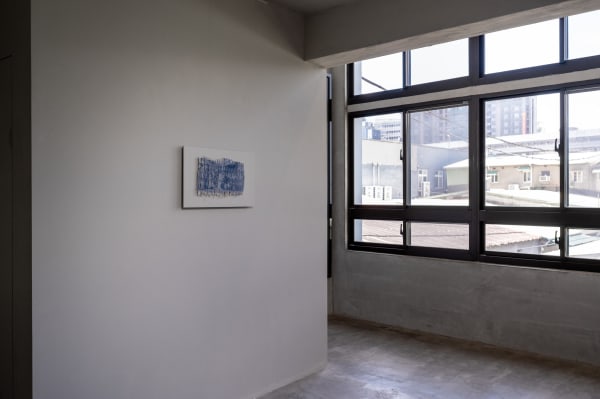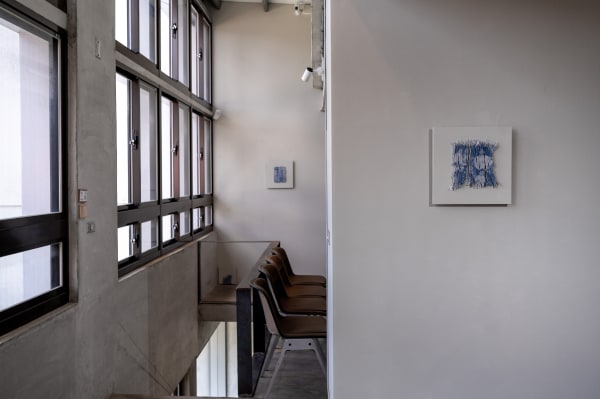Tung Pin-Yuan: Echoes of Oblivion : Solo Exhibition
In recent years, my ongoing artistic practice has taken the experience of grief and loss as its foundation, gradually developing into a chapter-based series. The content spans reflections on life, explorations of materiality, and emotional writing. Through ritualistic methods, the works respond to feelings of disappearance and the unknown. They begin with images left behind in family photo albums, tracing memories and contemplating the continuity and preservation of life.
Echoes of Oblivion originated in early 2024, when I found myself gazing at a few family photographs my mother brought home while sorting through my late grandmother's belongings. These images include commemorative portraits taken with close relatives across various stages of life, as well as solitary snapshots of her youthful, smiling face. Once adhered tightly to her dressing table, the photos still bear traces of adhesive marks-evidence of their passage through time and movement alongside their owner. These originally silent images now seem imbued with an invisible presence, as though marked by a "soul without a host," strongly radiating a call not to be forgotten.
The fear of forgetting that accompanies loss has given rise to motivations of commemoration, mourning, and remembrance. This exhibition seeks to revisit and gaze upon these once-vivid yet increasingly fragmented and blurred memories. Through a process of artistic re-creation, I attempt to re-experience history via labor and contemplation, thereby opening up possibilities for the re-manifestation of memory. For the first time, the creative perspective extends beyond the private realm of family albums, toward a broader memory landscape, nostalgically reflecting on changes in my hometown's scenery and spiritually pursuing the presence of plants once tended by my grandmother.
Ceramics serve as the primary medium in this body of work, aiming to connect the solid yet fragile nature of the material with the tenuous state of memory. Through extensive experimentation, I push the material toward new potentials. Visually, the work draws from everyday observations and transformations-for instance, the blue afterimage is inspired by street posters that, after prolonged sun exposure, fade to only the blue spectrum. This phenomenon arises from the CMYK printing process, where cyan ink is typically applied in the base layer and thus fades last. This residual blue holds a linear sense of time and foreshadows an eventual loss, as even this final layer will disappear, leaving a blank void.
Thread-like ceramic fragments are inspired by the experience of shredding paper-narrow strips retaining partial messages and images that are indistinct yet emotionally evocative. I use this visual base to construct a plane from strip-like ceramic pieces, silkscreening images onto them. After firing, they naturally crack and shrink, presenting a visual metaphor for fragility and dissolution.
The labor and excavation involved in this creative process resemble a journey of uncovering my most genuine emotions, attempting to transform these inner voids into tangible, sensual forms. This exhibition hopes to convey my unique sensitivity in facing the erosion of memory, while also offering a reflection on the use and possibilities of ceramic materials. I hope visitors will feel the warmth and temporality embedded within the space.
-
Tung Pin-Yuan
Tung Pin-Yuan Taiwanese artist Tung Pin-Yuan (b. 1996, Taichung) lives and works in Qingshui, Taichung. He received his BFA from the Department of Material Arts and Design at Tainan National University of the Arts in 2018, and his MFA in Applied Arts (Ceramics) from the same institution in 2021. Rooted in ceramics and expanded through the use of mixed media-including resin, paper pulp, pigment powder, and other materials-Tung's sculptural practice explores the inherent properties of matter. Through iterative, process-driven experimentation, he embraces both the controlled and the unpredictable, allowing these tensions to unfold visually within his works. His practice is deeply engaged with themes of memory and loss, often developing as chaptered series that weave together cinematic language and ritualistic gestures. Tung's works transform private experience into densely emotional material forms, where the surface of the ceramic becomes a vessel for introspective and poetic storytelling.

